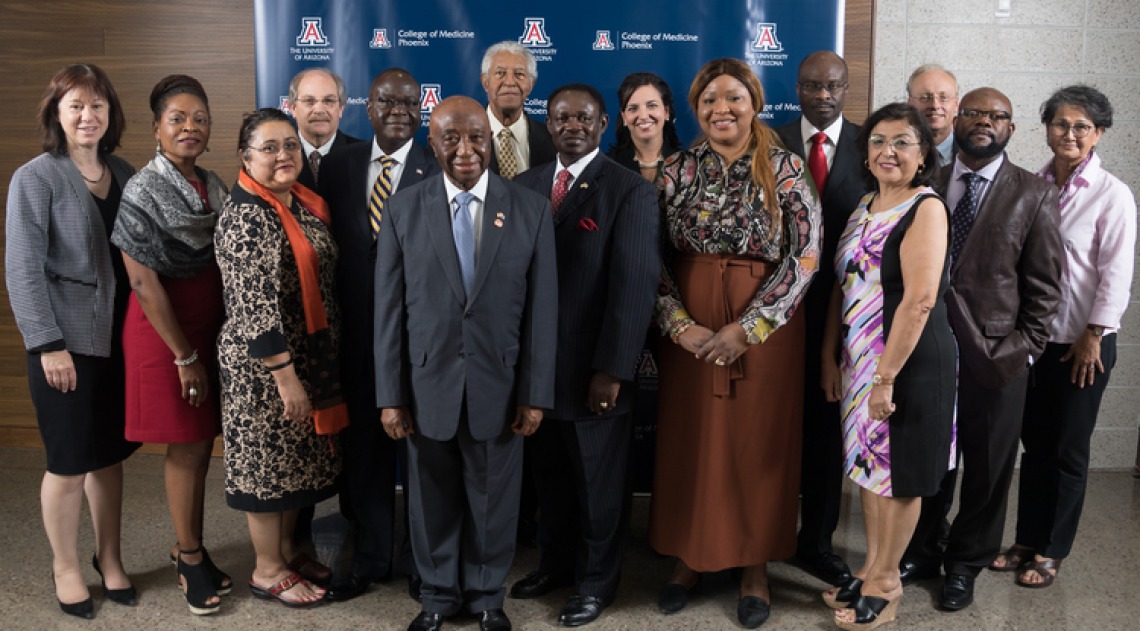UA Positioned to Help Train Health Workers in Liberia


Joseph Boakai Sr., vice president of the Republic of Liberia, signed a Memorandum of Collaboration with the University of Arizona on Monday as a first step toward developing programs that could send UA-trained health professionals to the west African nation.
Bokai met with representatives of the UA Health Sciences' five colleges, who explained each college's programs.
"It is our hope that the relationship formalized today will be the basis for innovative programs that support your rebuilding efforts in Liberia," said Dr. Akinlolu O. Ojo, associate vice president for clinical research and global health initiatives at the UA Health Sciences.
Boakai explained the recent history in Liberia, where a 15-year civil war decimated the country’s infrastructure, including most hospitals and clinics. A democratic government was elected and rebuilding began, but then the Ebola crisis struck and more than 4,000 Liberians died, including most of the physicians and nurses.
He said hospitals are being built, but the country does not have properly trained health professionals to staff or manage the new facilities.
"We need the support and collaboration of an institution such as yours," said Boakai, who has reached his term limit as vice president and will run for the Liberian presidency in 2017. "This is an exploratory mission."
Dr. Iman Hakim, dean of the UA Mel and Enid Zuckerman College of Public Health, said the UA already has programs in place that could assist in training, such as a mobile health unit that teaches prevention in underserved areas of the state.
The country's needs are as simple teaching people about washing their hands or providing clean water when a woman gives birth, said Liberian special envoy Mamaka Bility, who added that there are only two obstetricians in the entire country. In most rural areas, the oldest woman in the village helps to deliver babies. Bility said a mobile health unit would be a "welcome public health intervention," one that would "take health care to the people."
There are fewer than 50 medical doctors in Liberia for a population of 4.1 million.
Dr. David Beyda, director of the Global Health Program at the UA College of Medicine – Phoenix, explained that the college has experience setting up clinics in other countries, citing one in the Dominican Republic to which College of Medicine students travel twice a year.
"We would love to engage in the opportunity for our students to serve in Liberia," Beyda said. "Our Global Health Program is dedicated to help in any way we can."
Deans from the colleges of Pharmacy, Nursing and Medicine – Tucson also described their programs. Usha Menon, associate dean for research and global advancement at the UA College of Nursing, said the college has developed training programs for nurses in Ethiopia and India.
The Memorandum of Collaboration between the UA and the A.M. Dogliotti College of Medicine at the University of Liberia lists strategies that include developing joint medical research projects with an emphasis on training doctors, nurses and other health care providers; sharing teaching methods and curriculum development focused on the improvement of health care delivery; exploring student, faculty, scholar and educator exchanges; and developing programs by which the UA would host funded staff members of the Dogliotti College who are pursuing graduate studies at the UAHS.

